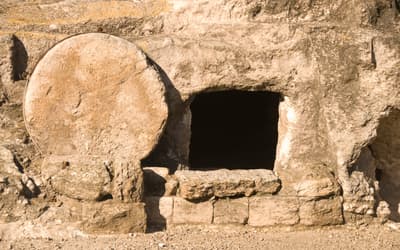Professional, peer-reviewed papers about Jesus: God incarnate, the second person of the Trinity, our Creator, the resurrected Savior and Redeemer, and the only means of salvation for sinners.

Jesus’s Resurrection: An Archaeological Analysis
Matt Dawson • May 12, 2021
Several archaeological finds are indirect evidences which build a cumulative case supporting the biblical account of Jesus’s resurrection.

Jesus, Scripture and Error: An Implication of Theistic Evolution
Simon Turpin • Oct. 30, 2013
The very teachings of Jesus are being attacked by those who state that, because of His human nature, there is error in some of His teaching regarding earthly things such as creation.

Understanding the Nature of Scripture, of Jesus, and the “Dis-Ease” of Theistic Evolutionists (BioLogos)
Callie Joubert • May 9, 2012
The apologetic suggests that BioLogos should consider that the ultimate source of their “dis-ease” is the nature and character of the Creator.
Jesus Christ on Answers Research Journal
Some radical scholars have challenged the existence and teachings of the historical Jesus of Nazareth. Opponents to the historicity of the first-century Jewish carpenter, rabbi, healer, and prophet as described in the New Testament often object because of their naturalistic presuppositions.
On the contrary, Jesus the Christ (or Messiah) was an actual historical figure as taught in both the New Testament and non-biblical literature from that time period. A Jewish carpenter and teacher in the first century AD, Jesus was born as God in the flesh. He lived among men and taught a “new covenant” in the Jewish tradition according to the Old Testament Scriptures. He was crucified by Roman authorities around AD 30. After he died, Jesus was buried but rose on the third day to prove his power over death. His life, ministry, miracles, death, and resurrection point to his mission: Jesus Christ is both God and the Savior of the world.
The aim of these research papers in the Answers Research Journal (ARJ) is to deeply consider Jesus from a recent creation according to a biblical framework. These professional, peer-reviewed papers address issues related to the historical Jesus of Nazareth and how this relates to other disciplines. Our journal considers the historical Jesus in light of his role in creation, his teachings against naturalistic assumptions and aspects of the evolutionary worldview, as well as his affirmations of the inerrancy of the Bible, the fall, early humanity as detailed in Old Testament Scriptures, and more.
